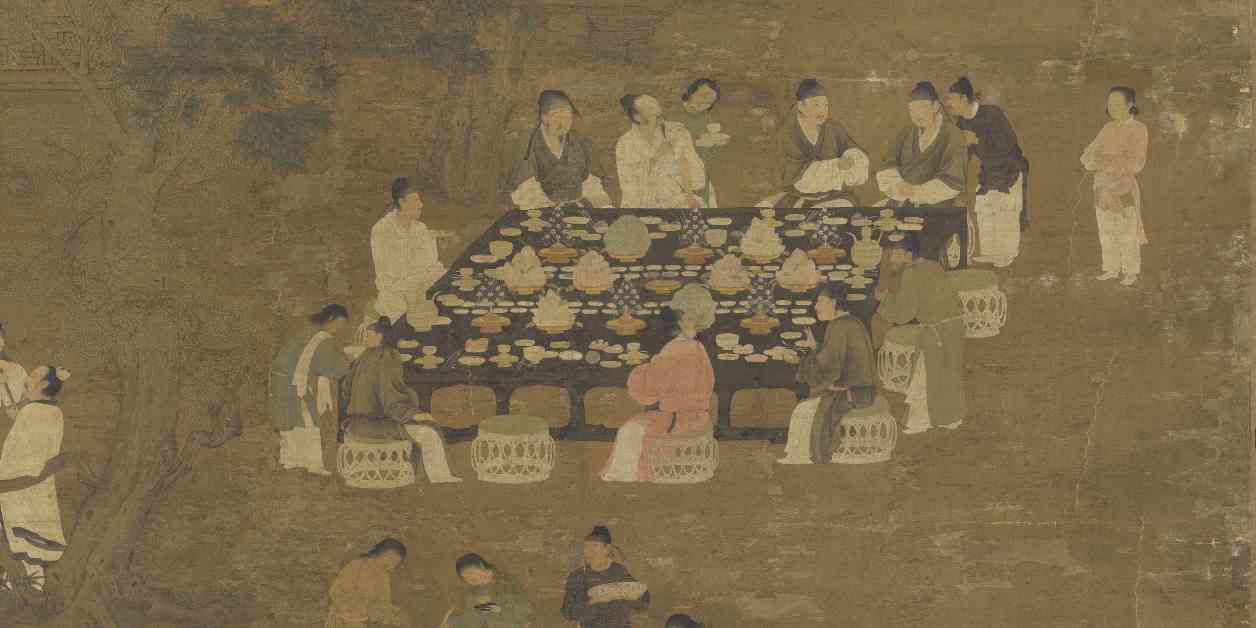The Rich History of Chinese Vegetarianism
As a journalist who once visited Shanghai, I was immediately struck by the vibrant vegetarian culture that thrives in China. From bustling vegetarian buffets near university campuses to elite Michelin-rated restaurants in major cities, the country’s long history of vegetarianism is a testament to its diverse culinary traditions.
Traditions of Gourmet Vegetarians
In China, being vegetarian is not just about dietary restrictions; it is a reflection of a deep-rooted cultural and historical tradition. The concept of gourmet vegetarians, individuals who view a meat-free diet as the epitome of culinary refinement, has existed for centuries in Chinese society. These individuals, often associated with ethical or religious beliefs, have long been revered for their dedication to a plant-based lifestyle.
During ancient times, meat played a central role in Chinese cuisine, with animal sacrifices being a common practice in political rituals. The meat from these sacrifices was highly valued and considered a precious gift. In fact, early Chinese rulers were even referred to as “meat eaters,” highlighting the cultural significance of meat consumption in society.
Despite the widespread love for meat in Chinese culture, there has always been a select group of individuals who chose to abstain from consuming animal products. Whether for religious reasons, ethical concerns, or personal preferences, these individuals upheld a strict vegetarian diet as a way of life.
Evolution of Vegetarianism in China
Over time, the reasons for adopting vegetarianism in China have evolved and diversified. While some individuals choose to avoid meat out of concern for animal welfare, others opt for a plant-based diet for health reasons or as a way to connect with their cultural heritage.
The various terms used to describe vegetarian diets in Chinese reflect the nuanced motivations behind this dietary choice. From the simplicity and purity associated with the term “su” to the Buddhist connotations of “zhai,” each term carries its own unique meaning and cultural significance.
In modern China, the popularity of vegetarianism has grown significantly, with an increasing number of elite vegetarian restaurants receiving Michelin ratings. These establishments offer a sophisticated dining experience that celebrates the diversity and complexity of plant-based cuisine. Unlike traditional vegetarian buffets, which catered primarily to retirees and workers seeking affordable meals, these upscale restaurants cater to a more affluent clientele who appreciate the artistry and creativity of vegetarian cooking.
The Art of Vegetarian Cuisine
In Chinese culinary traditions, vegetarianism is not seen as a limitation but rather as an opportunity to explore new flavors and textures. Elite gourmands like Su Dongpo and Yuan Mei viewed a vegetarian diet as the pinnacle of taste and sophistication, emphasizing the culinary artistry and creativity involved in creating meat-free dishes.
For these connoisseurs, vegetarianism was not just about dietary restrictions; it was a way of life that celebrated the purity and elegance of plant-based ingredients. From simple stews of wild herbs to elaborate feasts prepared by skilled chefs, vegetarian cuisine in China has a rich and diverse history that continues to inspire food enthusiasts around the world.
In today’s modern society, high-end vegetarian restaurants in cities like Chengdu offer a refined dining experience that emphasizes subtle flavors and exquisite presentation. These establishments eschew the use of processed meat substitutes in favor of highlighting the natural flavors of plant-based ingredients, creating a dining experience that is both sophisticated and satisfying.
Overall, the rich history of Chinese vegetarianism is a testament to the country’s cultural diversity and culinary innovation. From ancient rituals of animal sacrifice to modern Michelin-rated restaurants, the tradition of gourmet vegetarianism in China continues to evolve and thrive, offering a unique perspective on the art of plant-based cooking.

















